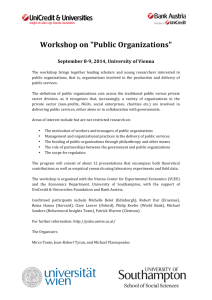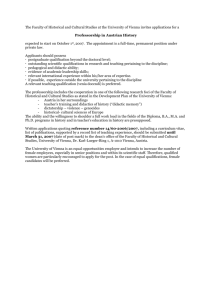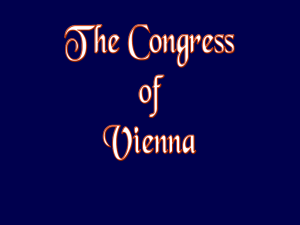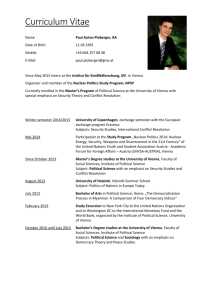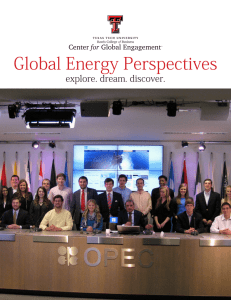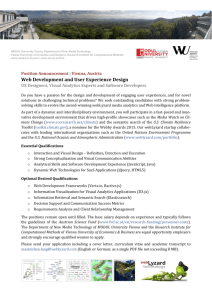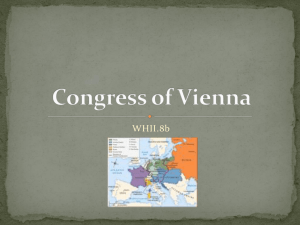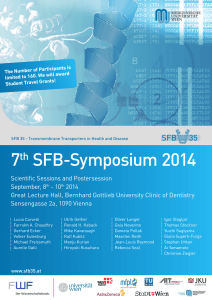Feedback for EPSRC Funding
advertisement
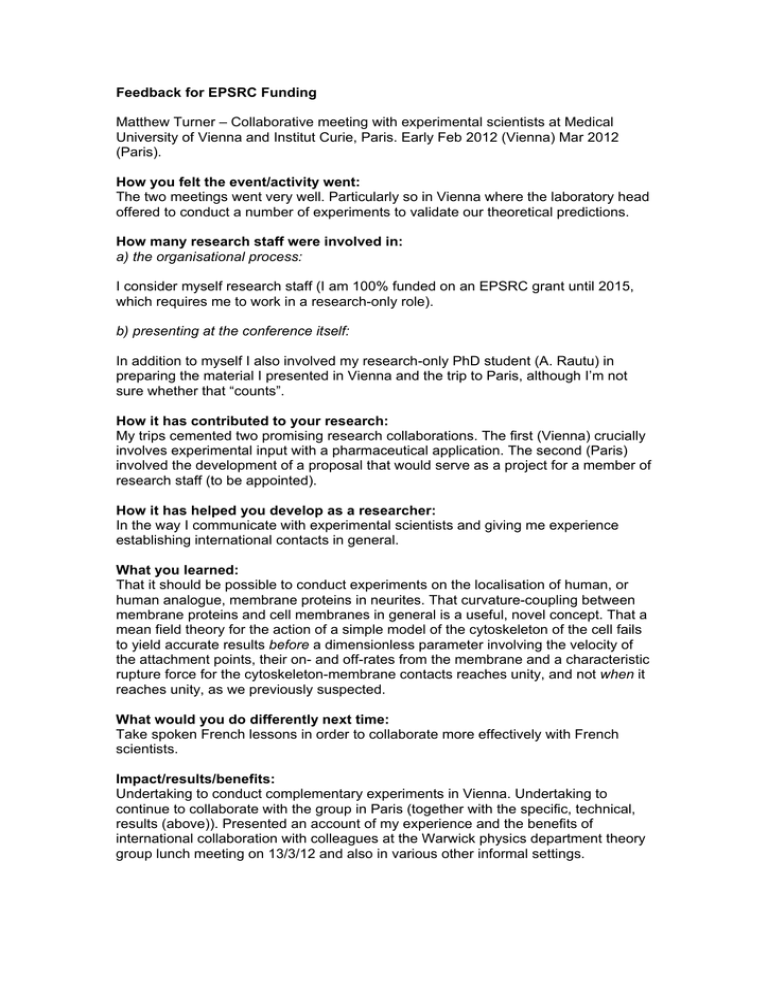
Feedback for EPSRC Funding Matthew Turner – Collaborative meeting with experimental scientists at Medical University of Vienna and Institut Curie, Paris. Early Feb 2012 (Vienna) Mar 2012 (Paris). How you felt the event/activity went: The two meetings went very well. Particularly so in Vienna where the laboratory head offered to conduct a number of experiments to validate our theoretical predictions. How many research staff were involved in: a) the organisational process: I consider myself research staff (I am 100% funded on an EPSRC grant until 2015, which requires me to work in a research-only role). b) presenting at the conference itself: In addition to myself I also involved my research-only PhD student (A. Rautu) in preparing the material I presented in Vienna and the trip to Paris, although I’m not sure whether that “counts”. How it has contributed to your research: My trips cemented two promising research collaborations. The first (Vienna) crucially involves experimental input with a pharmaceutical application. The second (Paris) involved the development of a proposal that would serve as a project for a member of research staff (to be appointed). How it has helped you develop as a researcher: In the way I communicate with experimental scientists and giving me experience establishing international contacts in general. What you learned: That it should be possible to conduct experiments on the localisation of human, or human analogue, membrane proteins in neurites. That curvature-coupling between membrane proteins and cell membranes in general is a useful, novel concept. That a mean field theory for the action of a simple model of the cytoskeleton of the cell fails to yield accurate results before a dimensionless parameter involving the velocity of the attachment points, their on- and off-rates from the membrane and a characteristic rupture force for the cytoskeleton-membrane contacts reaches unity, and not when it reaches unity, as we previously suspected. What would you do differently next time: Take spoken French lessons in order to collaborate more effectively with French scientists. Impact/results/benefits: Undertaking to conduct complementary experiments in Vienna. Undertaking to continue to collaborate with the group in Paris (together with the specific, technical, results (above)). Presented an account of my experience and the benefits of international collaboration with colleagues at the Warwick physics department theory group lunch meeting on 13/3/12 and also in various other informal settings.
